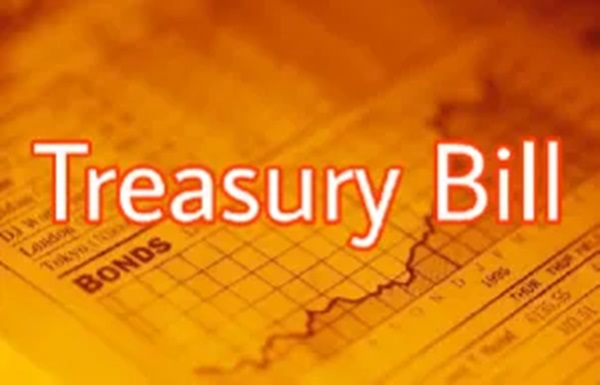
Falling T-Bill rates; a window of opportunity for economy
Treasury bill yields continue their downward trajectory, marking two straight weeks of notable declines. In the latest auction, the 91-day bill yield dropped sharply by 43 basis points to 27.98%, while the 182-day instrument settled at 28.68%.
This extends the momentum from the previous week's auction, which saw rates decline across all tenors - the 91-day bill at 28.41%, 182-day at 28.89% and 364-day at 30.37%.
The falling yields haven't dampened investor enthusiasm. If anything, demand has strengthened considerably, with the Bank of Ghana's recent auction attracting GH¢10.56 billion in bids.
This robust investor interest led to a significant oversubscription of 43.85%, highlighting the persistent appeal of government securities despite lower returns.
Advertisement
The Graphic Business believes the recent developments in the Treasury bill market require careful consideration. While the tumbling yields might initially raise eyebrows, they signal a potentially positive shift in the country's economic landscape.
The consecutive weeks of declining interest rates, coupled with robust investor participation, paint a picture of growing market confidence – but this optimistic outlook must be tempered with pragmatic caution.
The most recent auction data reveals a compelling narrative. With yields on the 91-day bill dropping by 43 basis points to 27.98% and the 182-day bill settling at 28.68%, we are witnessing what could be the beginning of a more moderate interest rate environment.
More telling, perhaps, is the remarkable oversubscription rate of 43.85%, with investors offering GH¢10.56 billion against the government's acceptance of GH¢7.65 billion. This strong appetite, despite lower yields, suggests investors are finding renewed confidence in Ghana's economic management.
However, this apparent success story requires deeper scrutiny. The robust participation in the T-Bill market isn't solely a vote of confidence; it's also a reflection of limited investment alternatives in the post-Domestic Debt Exchange Programme (DDEP) landscape.
With the secondary market essentially dormant and international capital markets closed to Ghana, investors find themselves with few viable options for their capital.
This captive market dynamic raises questions about the sustainability of current trends and whether they truly reflect organic market confidence.
The government's strategy in this context deserves recognition. Maintaining a prudent approach to bid acceptance and showing willingness to reject high-interest bids, demonstrates fiscal discipline – a crucial factor in rebuilding market trust.
This strategic management of the T-Bill market becomes even more significant considering that in January alone, the government borrowed GH¢38.45 billion through treasury bills, making it the primary funding source for state operations.
The Graphic Business is of the view that the real test lies in whether these positive developments can translate into broader economic benefits.
As economist Eugene Bawelle rightly points out, the true measure of success will be the trickle-down effect on lending rates. Lower government borrowing costs should, ideally, lead to reduced lending rates for businesses and individuals. Without this transmission, the benefits of falling T-Bill rates risk remaining confined to government finances rather than catalysing broader economic recovery.
The current situation also presents an opportunity for policymakers to address structural economic challenges. While enjoying the benefits of lower borrowing costs, the government must focus on diversifying funding sources and revitalising the secondary market.
The current reliance on T-Bills, while providing immediate relief, shouldn't distract from the need to develop more sustainable long-term funding solutions.
Moreover, the goodwill currently enjoyed by the new government must be leveraged wisely. Market sentiment, while positive now, can be fickle.
Maintaining investor confidence will require consistent demonstration of fiscal discipline, transparent economic management and steady progress on structural reforms.
Looking ahead, the key challenge will be balancing the immediate benefits of lower borrowing costs against the need for sustainable economic reforms.
The government must resist the temptation to view the current market dynamics as a permanent solution to its funding needs.
Instead, this period of relative stability should be used to implement reforms that will strengthen Ghana's economic fundamentals and broaden its funding options.
The falling T-Bill rates and strong investor participation indeed offer reasons for optimism. However, true economic recovery will depend on how effectively these positive market signals can be translated into broader economic benefits and whether they can be sustained through continued prudent economic management.
The current market dynamics provide a window of opportunity – one that must be used effectively to build a more resilient and inclusive economic future for Ghana.

